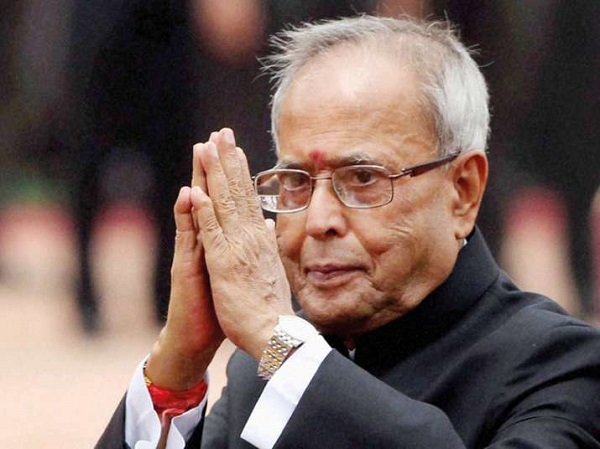 English
English

A leader of vast experience and knowledge who strived for consensus in the polity and left an imprint on India’s modern history, Pranab Mukherjee was India’s 13th President and was conferred its highest civilian honour.

New Delhi [India]: A leader of vast experience and knowledge who strived for consensus in the polity and left an imprint on India's modern history, Pranab Mukherjee was India's 13th President and was conferred its highest civilian honour.
The 84-year old veteran Congressman who played a crucial role in the functioning of the UPA governments till he was chosen the President in 2012, Pranab Mukherjee reflected decency in politics that had no place for rancour, acrimony and personalised attacks even as he remained firmly committed to the party's ideology.
He oozed a natural warmth and his intellect, knowledge, power of persuasion, memory and skills made him a go-to man in the Congress, especially in the last about 15 years of his political life.
Mukherjee was Union commerce minister (1993-95) and external affairs (1995-96) and Deputy Chairman Planning Commission (1991-96) when PV Narasimha Rao was the Prime Minister.
When Congress-led UPA came to power in 2004, Mukherjee was appointed defence minister and continued in the position till 2006 when he was made External Affairs Minister, a position he served till 2009.
Mukherjee served as Finance Minister in the second UPA government till 2012 when he was chosen the candidate of the ruling coalition for election to the office of President.
During 2004-2012, Mukherjee spearheaded critical decisions of the government on a range of issues such as administrative reforms, Right to Information, Right to Employment, food security, energy security, information technology and telecommunication and setting up of UIDAI through GoMs he headed.
In the seventies and eighties, he was instrumental in setting up the Regional Rural Banks (1975) and the EXIM Bank of India as well as National Bank for Agriculture and Rural Development (1981-82).
Mukherjee was also the author of a modified formula for resource sharing between the Centre and the States in 1991 which came to be known as the Gadgil - Mukherjee formula.
He was born in the small village of Mirati in Birbhum District of West Bengal to freedom fighters Kamada Kinkar Mukherjee and Rajlakshmi on December 11, 1935. His father, also a Congress leader, went to jail several times for his role in India's struggle for independence.
After pursuing a Master's degree in History and Political Science and a degree in Law from Kolkata University, Mukherjee took up teaching in a college and also became editor of a Bengali-language monthly.
Mukherjee has served on the Board of Governors of IMF, World Bank, Asian Development Bank and African Development Bank.
He led the Indian delegations to the Commonwealth conferences, United Nations General Assembly, Non-Aligned Movement conferences.
He was given the Best Parliamentarian Award in 1997, and Best Administrator in India Award in 2011 and was conferred honorary doctorate by several universities including by Al-Quds University, Palestine and Hebrew University, Israel.
He was rated one of the best five Finance Ministers of the world in 1984 according to a survey conducted by "Euro Money" Journal published from New York and was declared 'Finance Minister of the year' for Asia in 2010 by "Emerging Markets", the journal of record for the World Bank and the IMF.
He was married to Suvra Mukherjee who passed away in 2015. Mukherjee is survived by two sons and a daughter. His daughter Sharmishta Mukherjee is a Congress spokesperson and president of Delhi Mahila Congress. His son Abhijit Mukherjee is a former MP. (ANI)
No related posts found.